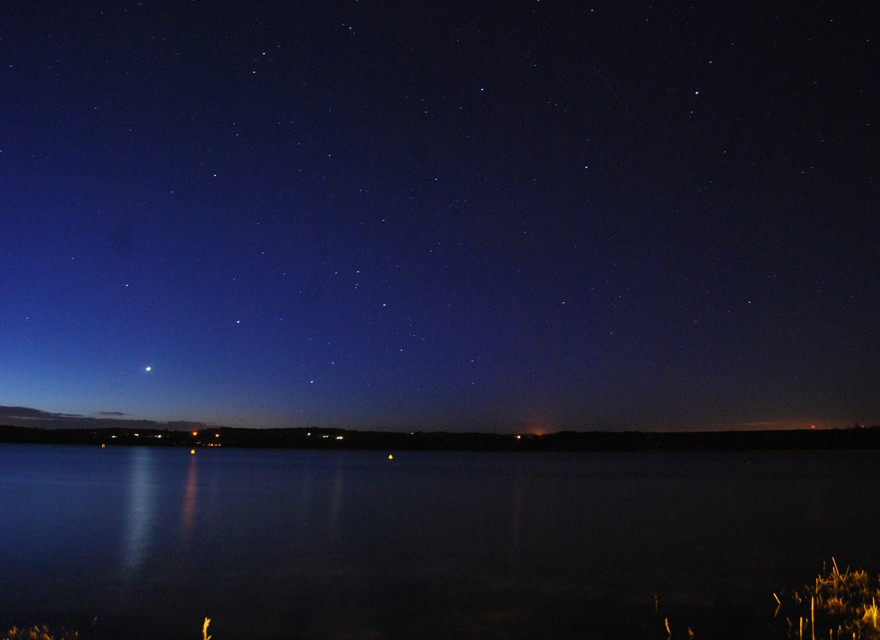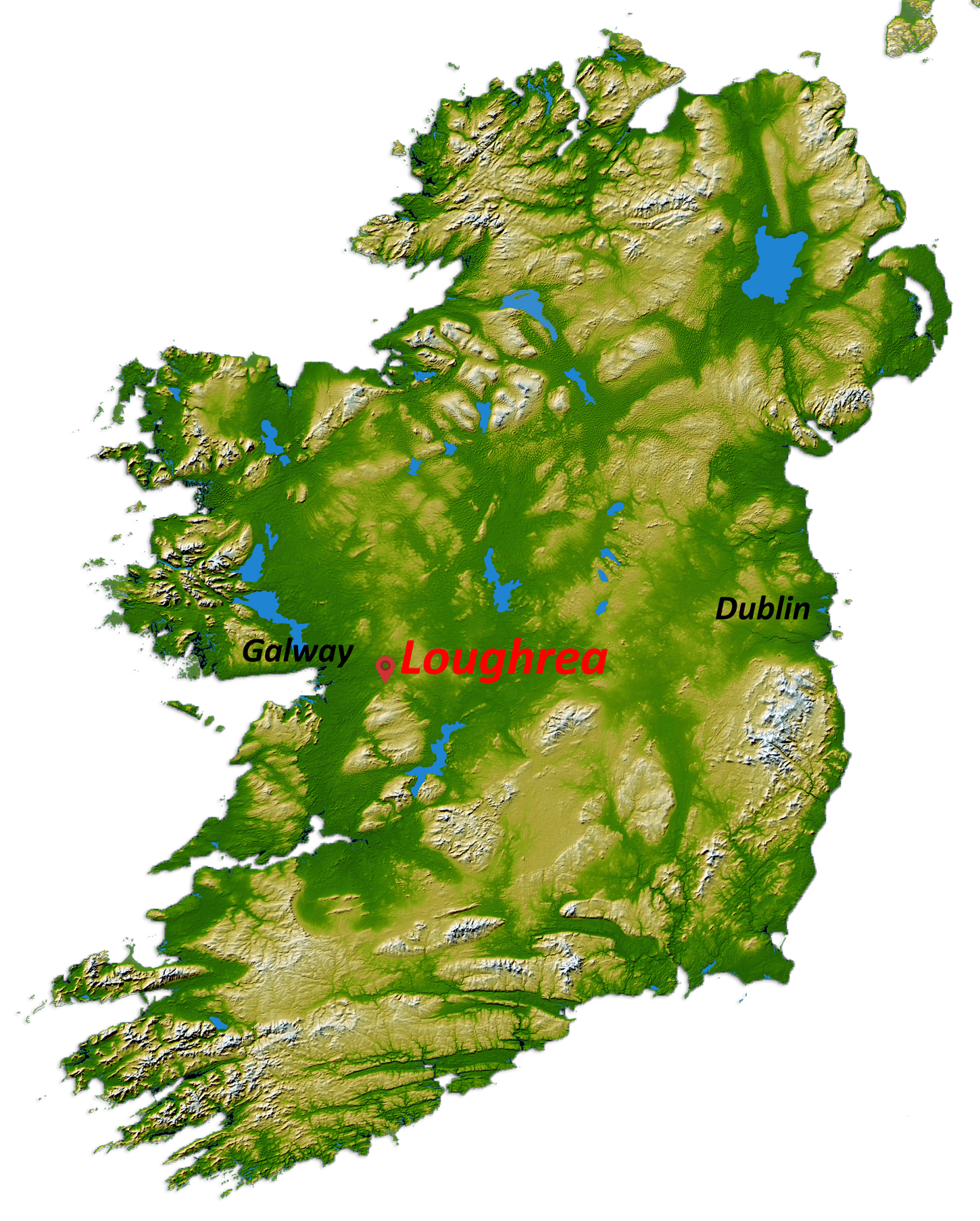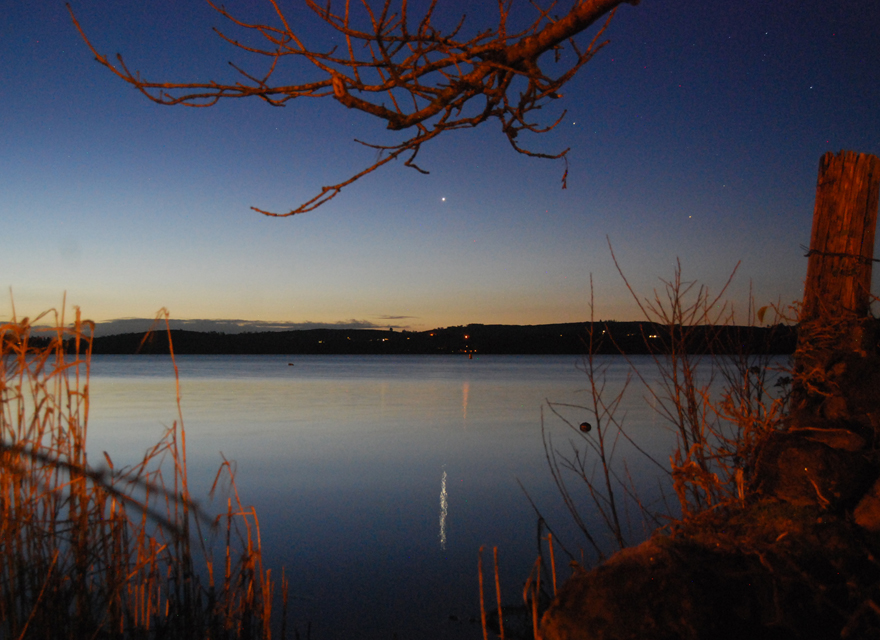






Loughrea Lake
Lough Rea
Co. Galway,
Ireland

After the sun and moon, Venus is the brightest object in the sky. Venus is not only bright enough to see by daylight, but it is bright enough to cast a reflection as well – seen here over Lough Rea, on a frosty early January morning..
Emily Bronte the author of Wuthering Heights (1818-1848) wrote of Venus:
Cold clear and blue the morning heaven
Expands its arch on high
Cold and clear Lake Werna’s water
Reflects that winter’s sky
The moon has set but Venus shines
A silent silvery star.
The planet has a highly reflective acidic atmosphere. The atmosphere of Venus has become very thick, due to the runaway greenhouse effect, aided by its volcanic activity. Venus reflects over 70% of the sunlight that reaches it. Light bounces easily of its clouds, which contain sulphuric acid and acidic crystals, high in the atmosphere. This is what makes the planet so bright.
Ancient civilizations thought that Venus was two different objects – the Morning Star and the Evening Star. Other civilizations have also associated the planet with love. The Babylonians called the planet Ishtar (or the Queen of Heaven), after their goddess of womanhood and love.








